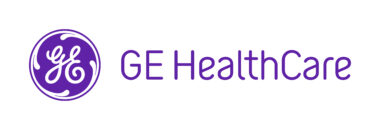Prevention is a key theme of this year’s World Stroke Day on Sunday, 29 October.
Stroke is the leading cause of disability worldwide and each year more than 12 million people have strokes. But there is hope.
Up to 90 per cent of strokes are preventable and by addressing a small number of risk factors responsible for most strokes, the world can be #GreaterThan stroke.
Available to comment:
Professor Dominique Cadilhac, Co-director and Research Lead of the Stroke and Ageing Research group, School of Clinical Sciences, Monash University
Contact details: Ph: +61 (0) 403 253 912, or [email protected]
- Epidemiology
- Clinical quality registries
- Health economics
- Health services research
- Implementation science
- Nursing
The following can be attributed to Professor Cadilhac:
“There have been major advances over the last decade in treating stroke with proven benefits in reducing its complications. With the large number of people living with stroke, more needs to be done at the public health level via primary prevention. We also need research on new therapies to reduce disability and innovative programs to better support people and their caregivers living in the community after stroke.
“Globally, a stroke occurs in an estimated 12 million people each year and results in catastrophic health impacts, including death and long-term disability. In our latest article released for World Stroke Day, we have illustrated the uneven access across many countries to reperfusion therapies and acute stroke units that provide care in a single hospital ward by doctors, nurses and rehabilitation therapists with expertise in stroke.
“Data from the Australian Stroke Clinical Registry emphasises the long-term health impacts that face Australian survivors of stroke, with three in four patients experiencing problems with either mobility, self-care, performing usual activities, pain and discomfort, or anxiety and depression. Knowing the signs of stroke and acting FAST in calling an ambulance and going to hospital is essential to minimise lifelong disability or death from stroke.
"The Stroke and Ageing Research Group is at the forefront of research in preventing, treating and innovating to support the long-term needs of people living with stroke. World Stroke Day reminds us of the global impacts of stroke, and how it remains a major health challenge worldwide, including in Australia. This campaign calls on individuals, communities and governments to take action to prevent stroke.
“As a global community we need to improve stroke outcomes worldwide by prioritising resources to improve access to effective stroke care treatments and rehabilitation services. Within Australia, more can be done to increase the awareness of stroke and improve the systems of care to ensure equity in access to life-saving treatments.”
Associate Professor Monique Kilkenny, Head of Big Data, Epidemiology, and Prevention Division, Stroke and Ageing Research group, School of Clinical Sciences, Monash University
Contact details: +61 (0) 402 44 9503, or [email protected]
- Epidemiology
- Health information management
- Health services research
- Big data
- Health promotion and prevention
The following can be attributed to Associate Professor Kilkenny:
“Prevention is the key in reducing the burden of stroke. A recent publication in The Lancet Neurology outlines the top priorities and strategies for reducing the worldwide stroke burden. (Pragmatic solutions to reduce the global burden of stroke)
“Stroke is often referred to as a ‘silent killer. It affects individuals, families, and healthcare systems worldwide. Preventing stroke is possible, and by securing financial commitment from governments, through taxing tobacco, alcohol, salt and sugar, we can improve efforts in stroke prevention and management.
“Currently, one in four people will have a stroke in their lifetime. The good news is that most (80%) of strokes can be prevented. In Australia, we are working on a project called ‘Love Your Brain’, to let people know about how to prevent strokes. This project is a partnership between Monash University, the Stroke Foundation and University of Tasmania. This new ‘Love Your Brain’ platform l encourages stroke prevention. Through digital solutions, we can engage and empower communities to adopt healthier choices and behaviours.
“On World Stroke Day, let's make a commitment to: making prevention a top priority, allocating healthcare resources for the prevention of strokes, and harnessing digital technology to actively engage and educate the public.”
Dr Lachlan Dalli, Post-Doctoral Research Fellow, Stroke and Ageing Research group, School of Clinical Sciences, Monash University
Contact details: [email protected]
- Pharmacoepidemiology
- Public health
- Big data
- Clinical quality registries
The following can be attributed to Dr Dalli:
“World Stroke Day reinforces the need for international collaboration on solutions to minimise the global burden of stroke. Without any intervention, it is estimated there will be more than 200 million survivors of stroke across the globe by 2050.
“This World Stroke Day, consider implementing changes in your lifestyle to reduce your risk of stroke, including reducing unhealthy foods in your diet, quitting smoking, being more physically active, and having your blood pressure checked by your doctor.
“Other ways to support World Stroke Day include raising awareness about stroke with your family and friends. Have a simple conversation to ensure they can recognise a stroke in the community and act FAST:
F – FACE: Is the person’s face drooped?
A – ARMS: Can the person raise their arms? Is there arm weakness or numbness?
S – SPEECH: Is the person’s speech slurred or confused?
T – TIME: Seeking prompt medical care is critical when a stroke occurs, with >1.9 million neurons destroyed per minute treatment is delayed.
“Our stroke research at Monash University is innovative and multi-faceted, with projects spanning the entire continuum of stroke care. We partner with survivors of stroke, clinicians, hospitals, and governments, to have a direct impact on clinical practice and policy to advance stroke care and outcomes.”
For more Monash media stories visit our news & events site: monash.edu/news
For any other topics on which you may be seeking expert comment, contact the Monash University Media Unit on +61 3 9903 4840 or [email protected]


